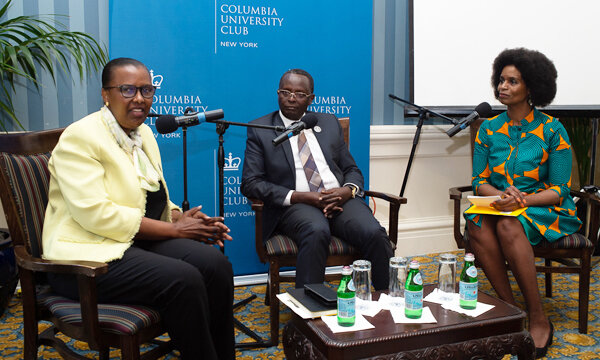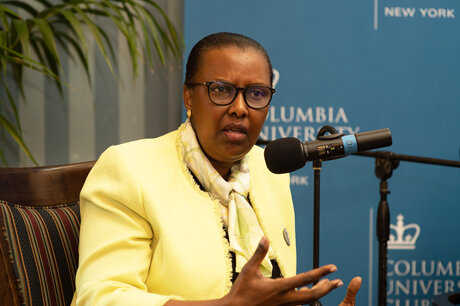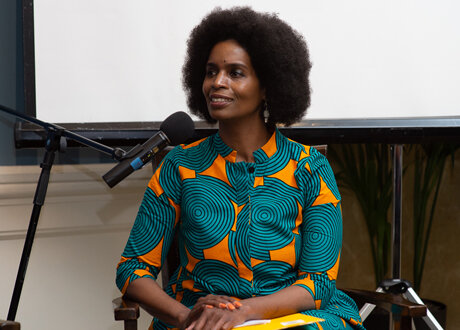Ambassador Series Focuses on Rwanda Today As Example of Integration and Inclusion
On May 20th, the United Nations Association of New York, in partnership with the Columbia University Club, hosted another edition of its Ambassador Series. In memory of the victims and in honor of the survivors of the genocide against the Tutsis in Rwanda, we had the special participation of Ambassador Valentine Rugwabiza and the Right Honorable Martin Ngoga, with law consultant Fay Parris as our moderator.
Ambassador Rugwabiza gave an insightful perspective on the matter. She stated that “the story of Rwanda is a story of hope, because we have been able to shape what Rwanda is today. Despite what were our most unbelievable and tragic starting point, we have been able to change that by making the choices that we hold till the present day. The choice of being together.” The ambassador saluted the choice of the Rwandan people of not allowing any form of revenge, as she described that “revenge means sacrificing the future.” Thus, she specified that the country has put in place a system that values every human being and does not tolerate impunity.
Moreover, Rt. Honorable Ngoga indicated that ‘reflecting’ is the most appropriate way to refer to this remembrance: “reflect where we failed and how we can work together, going forward, to make sure what happened in Rwanda doesn't happen again.” He continued by saying that “it is a measure of prevention, it is a therapy to those who lived that reality.” Mr. Ngoga encouraged the audience to keep the conversation going, since “it is a reassurance to the survivors that we know what happened and we acknowledge our failures; because the genocide happened due to collective failure. There was betrayal of that promise we made to one another.”
Rwanda has become a country of reference in integration and inclusion. As stated by Amb. Rugwabiza, “dignity is to be translated in actual tangible services and real policies.” Today, Rwanda has the highest number of women in parliament at 61% and the average age of cabinet member is 38 years old. She also highlighted the importance of youth inclusion, where more than 65% of the population is less than 30 years old.
After 25 years of the Genocide against the Tutsis in Rwanda, the country has emerged with dignity and hope.
UNA-NYC is committed to continue the discussion to promote the dignity and respect for all people. Special thanks to the Permanent Mission of Rwanda to the UN for making this conversion a reality.
Photography: Melanie Zhang




